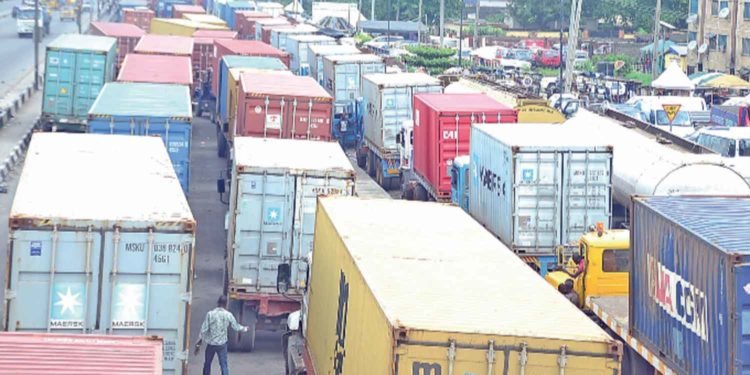Every business has its own risks. We have discussed about commodities export in one of our previous write-ups. We would, today, look at the many risks involved in the export of commodities from Nigeria to different parts of the globe. Risks can be mitigated to the advantage of the exporter and when left unchecked can mar the business.
One of the main goals of every business is to make profit. In order to achieve this, businesses keep setting new goals and developing new strategies. Some action plans for this could be to introduce new products or services, to recapitalize, to increase budget for advertising and marketing, to improve R&D, to improve production plants, to enhance supply chain, to introduce cost reduction and containment, and so on.
But in between all these, some unplanned circumstances might arise which might thwart the realization of these goals. The chance of these unforeseen circumstances occurring and impacting the realization of business goals is known as risk. Let us look briefly at some of these risks.
Market Risks
There are so many ways the activities at the marketplace can affect business. One of them is price. There is no fixed price in export business, practically speaking. Rather, you can have a range of prices. This is not the major problem here. The desperation among some Nigerian exporters have made price so unstable. They can go so low thereby hampering the activities of genuine ones.
Read; Commodities Exportation in Nigeria: An Insider Account
For these desperate exporters, they do not have a continuity plan with any customer. They keep searching for new customers all the time. A genuine exporter who had made his calculations based on current market range and value, will find it difficult to cope.
To mitigate this, the genuine exporter needs to develop better negotiation skills to insist on a good, right price for the deal. Buyers know genuine exporters when they see one and mostly at the point of negotiation.
Another risk involved in the market is stock glut. This happens when demand is lower than supply and the market is flooded with a particular product. Vietnam and China are leading buyers of timber. If today there are more woods in these countries than required at the moment, the prices will naturally go down because the demand will drop. Most wood exporters in Nigeria load a 20ft container before negotiating for price (because the buyer wants to see the actual sizes of loaded logs).
If after loading the container glut happens, the exporter is faced with the risk of losing money. If a container of a particular type of wood, say doussie or kosso, stood at US$11,500, it may drop to as low as US$6,500 (if you see a buyer in the first instance). A loss of US$5,000 is no small loss in business.
Fraud
This is one of the major risks in exportation. The risk here cuts across the entire export value chain. The buyer can defraud you, the supplier in the bush can defraud you, the haulage company can defraud you, the forwarding agent can defraud you, the labourers can defraud you, and so on.
Read also; Nigerian Agribusiness: The Export Potentials
One needs to be very careful before giving out cash to the local players within the value chain. For the buyers, exporters should ensure they do proper due diligence on prospective buyers. There are some websites that help verify buyers. It is not a hundred percent certainty but once such buyers have been reported on several platforms as fraudulent, they are easy to detect.
Again, protect yourself with the best payment terms. Do not release shipping documents without payment or a valid assurance of payment like LC.
Policy Instability
Nigeria, as at today, presents a highly unstable business environment. Our government, at the different levels keeps changing policies. Sadly, these policies most times are less favourable to small business owners. Each new administration comes in with new policies thereby killing administrative continuity.
The ease of doing business policy of government is yet to be felt by business owners especially exporters and importers. If we take instance with the congestion at the ports, the rot and the corrupt, shady deals going on there, we realize that this is most pitiable of all mentioned risks because it can be rectified.
Read more; The Misplaced Priority in Nigeria’s 2020 Revised Budget
The security agencies are feeding fat from it and would not want it to end. They collect varied sums of money at varied checkpoints from trucks either going into the port or coming out of it. The roads are deplorable. The entire Apapa axis is messed up.
Trucks, thus, stay up to three or four weeks before getting into the wharf. This is bad for business as it grossly decreases lead time. Not keeping to agreed lead time is itself a risk because it does not help strategic planning both on the part of the buyer and the exporter.
Inland Haulage
This follows from the above risk. Truck owners are taking negative advantage of the congestion at the port to hike prices on a daily basis. This makes it difficult for you as an exporter to make benign calculations while negotiating with a client.
You might calculate on a benchmark of a prevailing N650,000 for a 40ft from Jebba (Niger State) only to be begging with N720,000 when you are ready to load, say, in a space of two weeks. They all point to the port and extortion from security agencies as the main reasons for the price hike. This unpredictability is very bad for business.
Payment Terms
This is another high-risk point in export business. Our desperate exporters are ready to lay down their business lives for their ‘cherished’ buyers. They agree to outrageous payment terms in their contracts and go ahead to execute them.
Read further; Nigeria’s Real GDP Grew by 1.87% in Q1 2020
An instance is when you agree to collect 20% mobilization fund for a consignment and go ahead to fund the remaining to ship the goods. The 80% is expected to be paid after the buyer has received the goods in his warehouse, inspected it and is satisfied.
This is outright nullity in business. The possibility of this buyer paying is only in his hands. He has the goods, he has the documents, he has his money, all with him. By agreeing to that kind of agreement, he already knows that you are either naïve with no mentor or desperate for the foreign currency. Lots of our exporters’ hands have been burnt with obnoxious payment terms.
Foreign Exchange
This affects almost all businesses whether domestic or international. The instability of forex is a huge risk in business. In practical terms, you may not have a control over this risk except you can read the signs of time like interpreting other macroeconomic elements that determine the rate of forex. These, in themselves are mere speculations; they might or might not come through.
For instance, if you did your calculations based the current forex rate of N360/$ and by the time your money is repatriated, the rate has gone down to N300/$, you are already losing N60/$. If your FOB value is US$5,000, you are at a loss of N300,000. Conversely, and positively too, if the rate goes up to N405/$, you gain N225,000 on top of your initial calculated profit.
Read more; 812 Health Workers Infected in Nigeria – NCDC; 348 new cases recorded
To mitigate this and keep record of inflow into the country, the government has introduced the I & E Window (Import and Export Window) that provides exporters some stability in changing foreign currencies.
Financial Risks
This refers to the judicious management of business capital. When a business is managed by incompetent hands, there is bound to be mismanagement of funds. Most times, there is no distinction between business expenditure and personal expenditure. There is no clear-cut budget for marketing and advertising. There is no allocation of funds to the different facets of the business. These constitute financial risks to the business as they might lead to capital erosion and consequent insolvency.
The above are some of the risks involved in the business of export of commodities. There are so many others but these could guide new entrants to mitigate these risks. We shall, in our next article, articulate some of the best ways to guide against these risks.
Written by,
Edokobi Azuka Stephen
+234 803 553 5948






















































